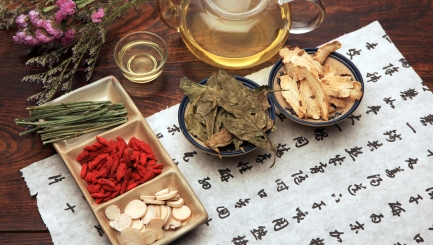Treating Seasonal Affective Disorder with Herbal Supplements
 Those of us living in the U.K. are very aware of the phenomenon SAD (seasonal affective disorder). When nights are long and days are grey it is not unusual to experience a drop in your mood. There is an intimate connection between our mentality and the seasons, and most people will acknowledge this. For an unlucky few, this feeling can become a full-blown version of SAD, or ‘the winter blues’. Complementary health advice to those sufferers includes raising the level of vitamin D3, as well as omega-3 dietary content. Then there is the use of light therapy, where sufferers expose themselves to special full spectrum light bulbs, which simulate the sun’s rays. In addition to these well-known methods, there are several herbs which may provide relief from SAD.
Those of us living in the U.K. are very aware of the phenomenon SAD (seasonal affective disorder). When nights are long and days are grey it is not unusual to experience a drop in your mood. There is an intimate connection between our mentality and the seasons, and most people will acknowledge this. For an unlucky few, this feeling can become a full-blown version of SAD, or ‘the winter blues’. Complementary health advice to those sufferers includes raising the level of vitamin D3, as well as omega-3 dietary content. Then there is the use of light therapy, where sufferers expose themselves to special full spectrum light bulbs, which simulate the sun’s rays. In addition to these well-known methods, there are several herbs which may provide relief from SAD.
St. John’s Wort – a tried and tested solution for depressive conditions. In order to counter the effects of SAD, sufferers should begin taking it in mid autumn, as its effects take a while to blossom. St. John’s Wort can be taken with confidence as it has already passed numerous clinical tests, and now receives high regard, even within the medical community. This being the case, it is still advisable to consult your doctor before starting any course of medication, complementary or otherwise.
Lemon balm – a traditional wellness solution for tension, headaches and depression. It is said to have a tranquilising effect and might therefore provide relief from the mild anxiety, or ‘cabin fever’ associated with SAD. Take lemon balm as a herbal infusion, or mix it with other oils.
Chamomile tea – a relaxing remedy used the world over for promoting sleep and wellbeing. Though widely available in tea bags, it might be worth investing in the dried flowers and taking it as a loose leaf preparation.
Valerian root – a supplement that is believed to have tranquilising qualities. Valerian may provide benefits when combined with the other herbs mentioned here, especially in the form of a tincture combine with lemon balm. Extended use of Valerian is not recommended, however, as the effects wane after a fortnight or so of use.


Comments are closed.